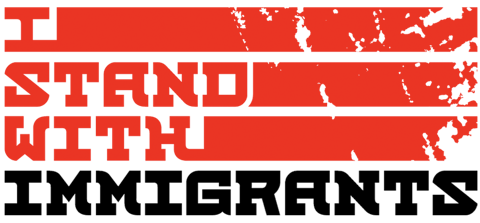Hsin-Fen & Luis Carlos
“I remember that when I was a kid I would just sit on the border and watch people crossing into the U.S. to buy stuff and then go back home. As time went on you started seeing the fence get stronger. I witnessed that firsthand.”
HsinFen’s Story:
I am from Taiwan. My cousin is studying in San Francisco, but the rest of my family is in Taiwan. I came to Arizona in December of 2012. I was in Taiwan until I graduated from University, and then I got a grant to go to the UK to teach Chinese for a year. Then I went back to Taiwan and got my teacher’s certificate. I was doing substitute teaching at an elementary school, but I felt something was lacking so I came here for my Master’s. I always thought that I would go back to Taiwan because I am taught that where we get things from is where we should contribute back. My family and friends are all teasing me, asking where my passion is for educating the children of the country I’m from.
For now though, we are here. Hopefully someday we can go back and stay for a while. Most people think about the food when they think about Taiwan. It’s very accessible. Even at midnight, if you’re hungry, you can get something very local, authentic and homemade.
It was really hard for my mother knowing that I found somebody here and was staying here. But now she’s kind of accepting. I met Luis Carlos at school. I was doing my Masters at University of Arizona, and he was doing his PhD.
From my family, and my mom, I developed what might be considered slightly unique habits where we eat Kiwis and Apples in the morning to start the day. We also drink warm water, because it’s supposed to be healthier than drinking water with ice.
Luis Carlos Davis
I’m from the border town of Nogales, Arizona. I was raised between two countries, two cultures, two languages. My family has always been from that area. My grandparents used to live right next to the fence. That’s basically where my film projects emerge, from that duality. I have uncles on the Mexican side but my mom and brothers live on the U.S. side. I did third grade in Mexico. My dad was a teacher since age 17 in Mexico for more than 50 years. My mom has always been a citizen. Growing up on the border I don’t really see it as two places. I see it as one place. I think it’s a different experience since I see both places as one.
I’ve seen the fence change, physically change. I remember that when I was a kid, I would just sit on the border and watch people crossing into the U.S. to buy stuff and then go back home. As time went on you started seeing the fence get stronger, I witnessed that firsthand.
HsinFen
Asian culture is more conservative. When you tell them that you’re going to marry a foreigner they think it’s somebody white and tall. And he’s not. He’s the first man that I brought home.
Luis Carlos Davis
I don’t think her family had in their mind what a Mexican American would look like. They didn’t even know about Mexico. I think it was harder for her family than mine because my mom, she’s 84, she’s very openminded for her age.
HsinFen
I think it’s also the environment. Being in the U.S. there is so much diversity so you become more accepting of the differences to an extent.
Luis Carlos Davis
My dad was a Mexican citizen. He always worked there even though we lived on the U.S. side because he thought that teachers in Mexico were more valued than here in the U.S. Here, he thought that students didn’t really respect teachers. He liked that kind of education where students still have respect.
HsinFen
That is one of the problems I had teaching in the U.S. Because when I was teaching in Taiwan, everybody respected teachers. Here it is more liberal, and they don’t treat teachers as nicely as over there.
Luis Carlos Davis
I did this presentation in Taiwan. I would encourage them to interrupt me if they had a question or if something was confusing, but they never would. They were almost too polite (laughs). It took a while to open that up in them.
HsinFen
Both of us are very adventurous. We are willing to try different things. We will definitely teach our children our own languages. He will talk to the kids in Spanish, and I will talk in Mandarin, and in school they will learn English. We don’t want them to lose the languages.
Luis Carlos Davis
I will teach my kids everything that is positive about my future, and if there is something negative, I don’t want to express that to them. That will be the same for her culture as well. I will try to encourage them to familiarize themselves with other cultures as well. I want them to look for other experiences and be like a sponge.
#CELEBRATE IMMIGRANTS
We all know someone with an immigration experience or have an immigrant heritage story of our own. Join us in sharing your story for a chance to be featured on our official channels!

